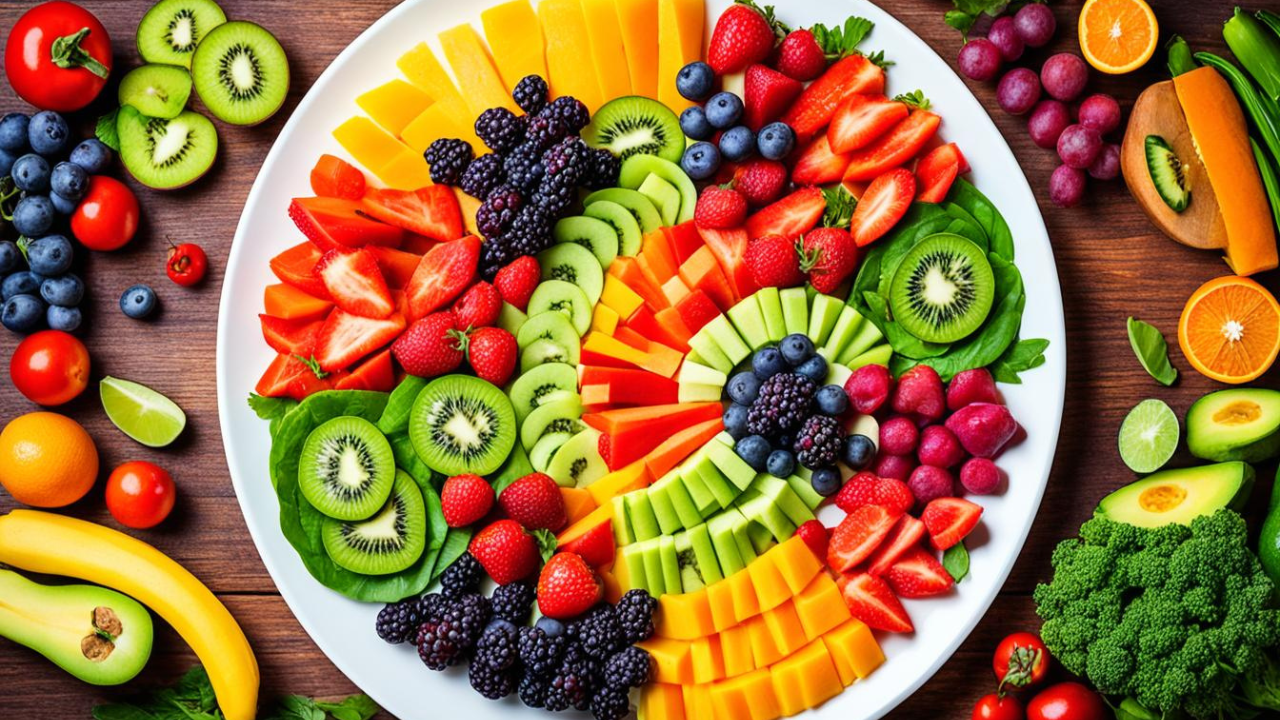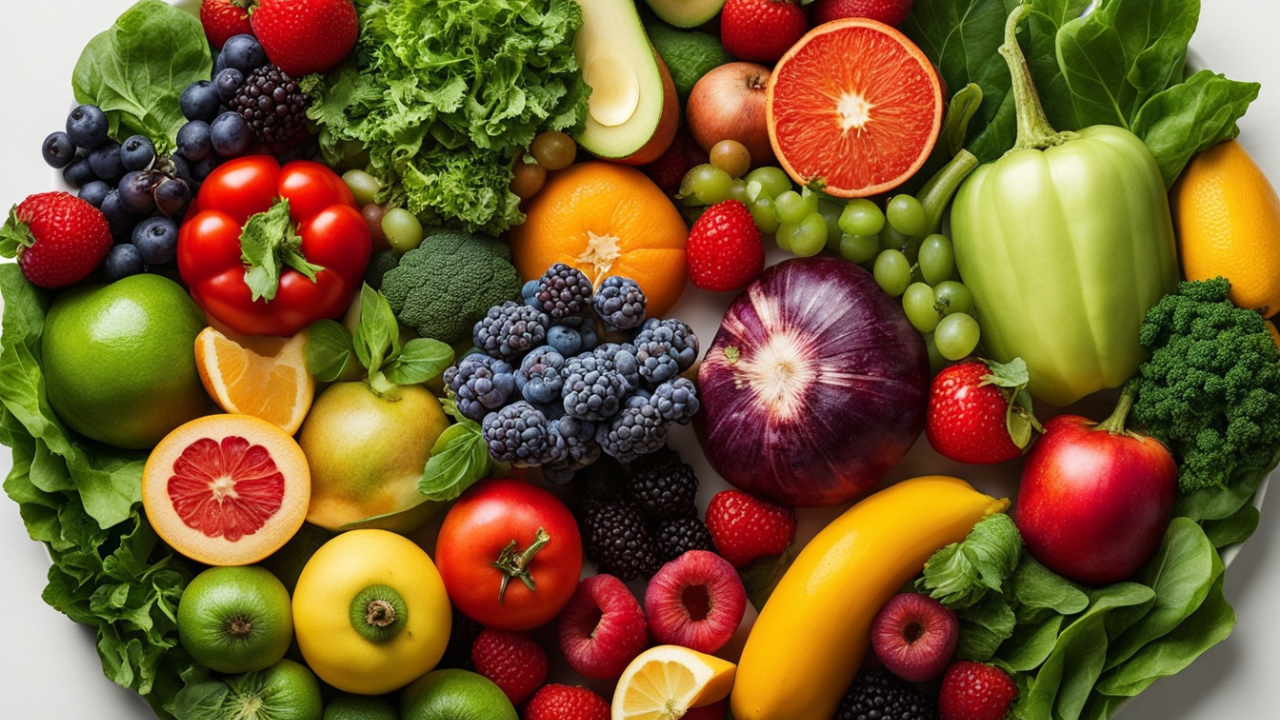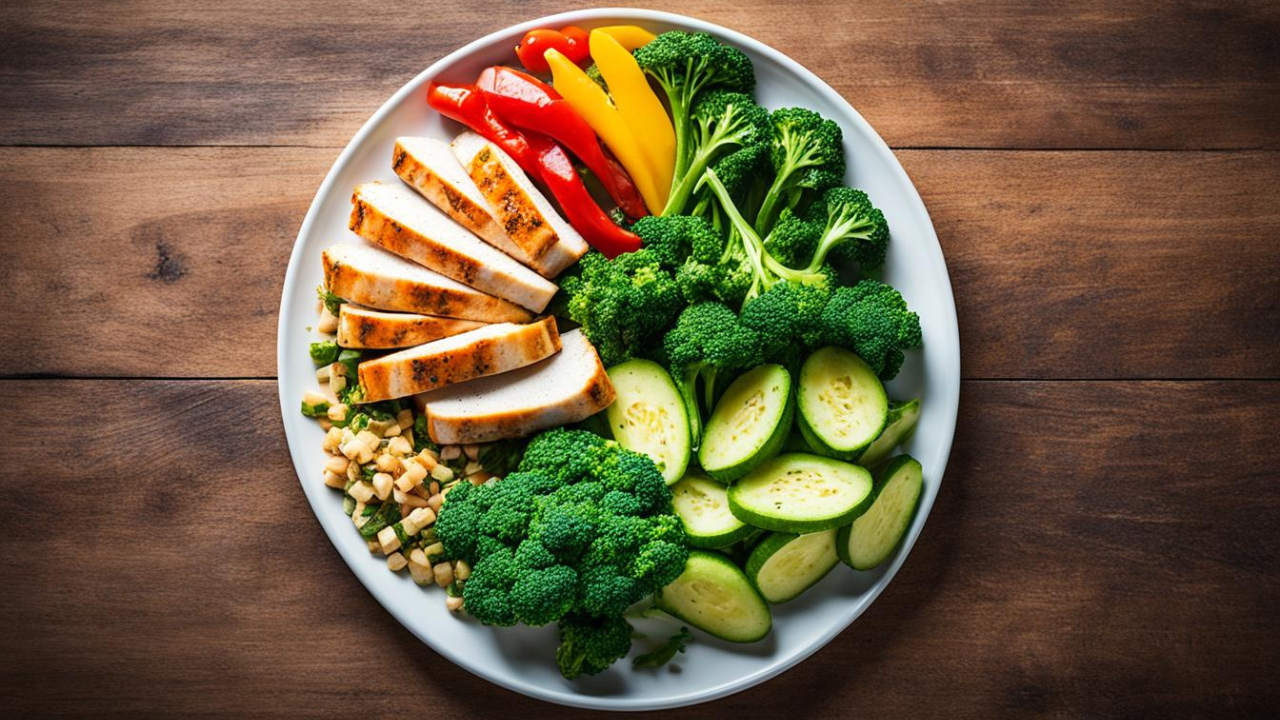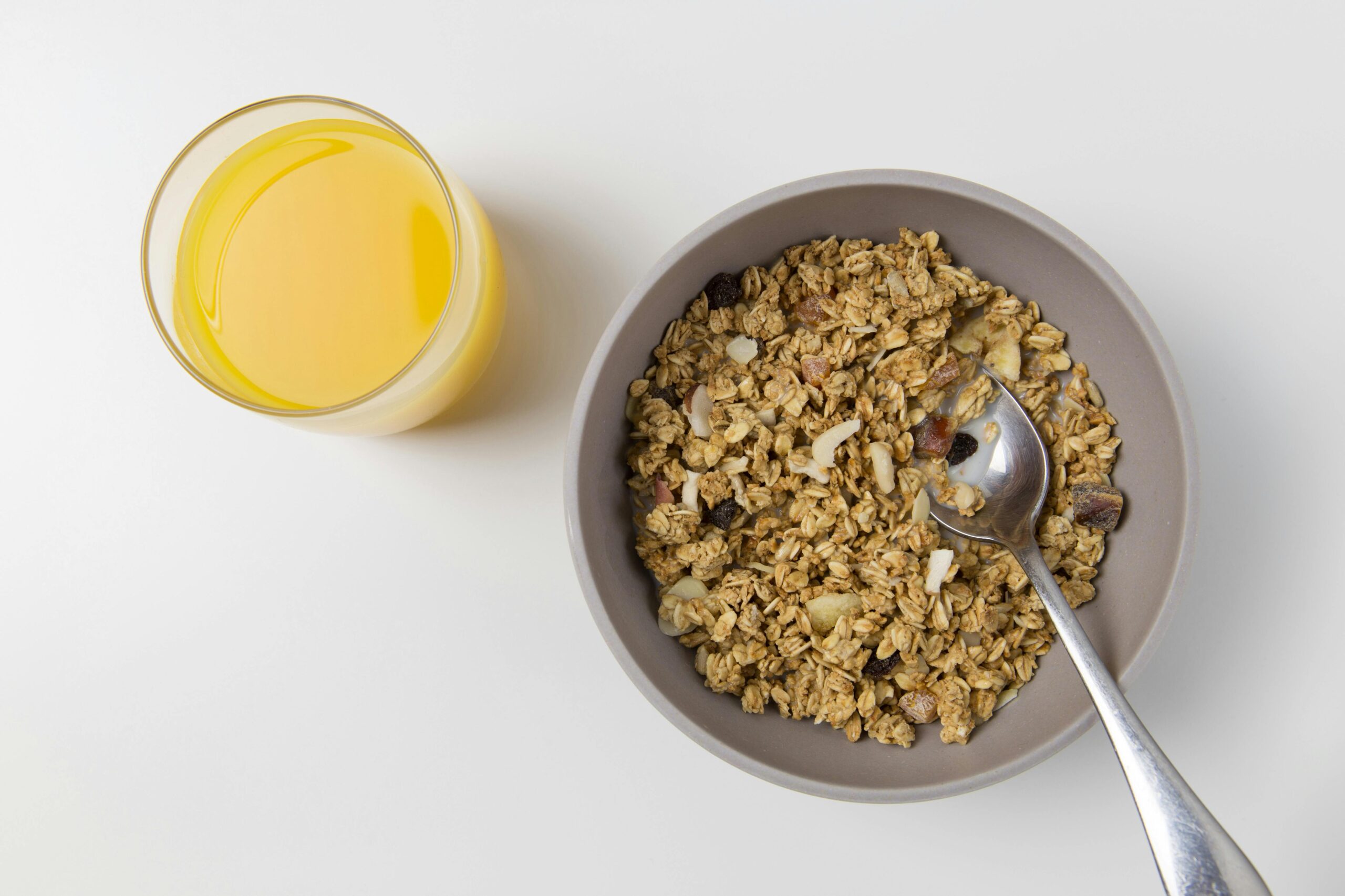Intro of Plant-Based Diet Benefits: Boost Your Health
Plant-Based Diet Benefits: Boost Your Health. In 2024, over15% of people observed in the U.S. were obese This is why we have to take better eating habits. In the article, I talk about eating more whole foods/plant based! Heart Health Certain foods can contribute positively to heart health, assist in weight control and reduce the risk of some cancers.
Trying to lose weight or be healthful? A plant-based ease be the respond. Research suggests it is connected to lower rates of health problems, such as heart disease and diabetes. A better-working body means less reliance on medication, help along by more efficient digestion of gut-friendly fiber in all those plant foods.
GRAB THE WEIGHT LOSS SECRETS HERE
Explore natural weight loss remedies you can easily practice at home, discover healthy lifestyle changes perfect for beginners, and get daily health tips designed especially for seniors to enhance well-being.
Key Takeaways
- Not only can eating more plants improve heart health, but also lower inflammation and reduce your risk of obesity and type 2 diabetes.
- Eating less meat and more whole, plant-based foods adds to a healthy diet that promotes weight maintenance as well the general physical fitness.
- Going plant-based is not only good for the environment and an ethical choice… it also serves as a sustainable lifestyle!
- There is a reduced risk of colorectal, breast and prostate cancer among those following plant-based diets.
- It has never been easier to shift over plant-based, with so many great recipes sitting at our finger tips.
What is a Plant-Based Diet?
It’s not just eating a plant-based diet here. The diet emphasizes whole (as in, not heavily processed) foods — think veggies of all kinds and colors; fruits galore; grains like quinoa, brown rice, barley or oats; legumes including beans, lentils and soy products like tofu as well as peas such as chickpeas; nuts; seeds. And that does not mean you have to eliminate anything animal-based from your diet entirely. Rather, this is a guide to what plant-based eating *isn’t. *
None of these make a plant-based diet which is centered on whole, unprocessed plant foods. From mostly plant-based with some animal products (flexitarian) all the way to vegan, no meat at all. The basic concept is to eat less animal food and more plant-derived foods.
Heart Health Benefits
Moving to vegetarian diet can make a big difference for heart It is great for cholesterol and blood pressure. They are key ingredients for reducing heart disease risk. This is how you can maintain good balance in heart by avoiding saturated fat from animal and instead eating more plant food full of a lot fiber and antioxidants.
Lowering Cholesterol and Blood Pressure
There is evidence to suggest that eating more plants can improve your cholesterol. Low-fat vegan diet good for blood sugar and heart Timin helps type 2 diabetics血圧、体重管理に適 White vegetarians practicing a plant-based diet are simply living longer — and having healthier blood pressure.
Reducing Risk of Heart Disease
Plant-based diet for more than just lowering cholesterol and blood pressure It’s tied to a reduced risk of heart disease and death from cardiac causes. It is also good for your heart and has even been shown to reverse heart disease in some cases.
Weight Management Advantages
Eating plant-based foods can help you avoid being overweight. Research reveals that consumers of high plant-food diets have less obesity problems. Those who eat more meat and processed foods consume only about grams a day.
Plant-based foods high in fiber and water full you up quickly. They allow you to eat more, without a load of calories. A unit of your body fat may mean that if you reach it, pretend to consume one percent or 5%-10% from a plant-based diet.
Large studies show that eating plants is associated with a lower risk of weight gain (5, 6). One study, for example, showed that a whole food plant-based diet has better weight loss effects compared to the low carb diets. This is of course because plants fill you up and stop eating drops.
The key to losing weight is adherence to a plant-based way of eating. It is especially beneficial for those who deal with food addiction. This will make you conveniently full and keep your cravings at bay in a healthy way, as opposed to filling belly on junk food.
With over 1 billion people around the world living with obesity and overweight, a plant-based diet is top on list for plant based eating plan weight loss and prevention of these conditions. So over the long term, helping you slim right down which is helpful for your general health.
Plant-Based Diet Benefits: Reducing Inflammation
A plant-based diet, being anti-inflammatory in nature massively reduce all the inflammation going on within. Fruits, vegetables whole grains nuts seeds are loaded with antioxidants and phytochemicals. These substances are of great importance in fighting off harmful free radicals, as well as reducing oxidative stress. As out of control inflammation is a driver for disease, (heart disease, cancer and the whole autoimmune spectrum) this would be perfect.
Antioxidants and Phytochemicals
Antioxidants and Phytochemicals — Foods that are plant-based are rich in antioxidants or phytonutrients to help fight inflammation. These compounds inactivate free radicals and reduce the oxidative stress. This damage is often a major driver of chronic inflammation. Incidentally, consuming higher levels of the above anti-inflammatory whole plant foods can help reduce your risk for numerous inflammatory diseases.
Lowering Chronic Inflammation
Conversely, diets that are high in processed meats, refined carbs and unhealthy fats can promote inflammation. Diet also seems to play a key role, as plant-based dietary patterns are associated with lower levels of inflammatory markers (CRP and IL-6) compared to meat-based diets [98]. Credit: Getty Decreasing consumption of pro-inflammatory foods and eating increased amounts of anti-inflammatory plant based diets will assist to reduce chronic inflammation, which could elevate the chances having some health complications.
Diabetes Prevention and Management
The pathway to diabetes prevention is based in the consumption of more plants. When you eat WHOLE plant-based foods, they are FULL of fiber and antioxidants/phytochemicals. These help with blood sugar control and insulin sensitivity. This can reduce the risk of developing type 2 diabetes.
Research has shown that people who eat a lot of red and processed meats are at higher risk for developing diabetes. BUT, the more we eat of these machines to begin with, is only going to result in a longer list of all health care issues you may encounter but eating more plants can really help lower that risk.
Fiber, Antioxidants, and Diabetes Risk
Plant-based diets are associated with less risk of type 2 diabetes for all comers. Red meat can increase diabetes risk, even when eaten in moderate quantities → Globally 8.8% of people have diabetes and in the US it affects 10.5%, with That figure is now just north of a third (34.
Approximately 90% of diabetes cases in the US are type 2. This shows how common it is.
Blood Sugar Control with Plant-Based Eating
Research studies have shown that eating whole plant-based foods can reduce your risk of developing diabetes and help to eliminate or manage the disease. Vegetarian and vegan diets for blood sugar control Diet is occur to be the prosperous home remedies for preventing diabetes and manage it.
Cancer Risk Reduction
The question arises — do the foods we consume contribute to cancer prevention? Research has shown that plant based foods can reduce the risk of a variety cancers. Packed with antioxidants and fiber some foods such as fruits, vegetables, whole grains, legumes. These nutrients also protect us from Cancer.
Protective Effects of Plant Foods
These foods are mainly plant-based and contain bioactive compounds, such as the phytochemicals and antioxidants. These components reduce inflammation while fighting cancer development. The more colors of plants you eat, the less cancer as a gene in your body[MAXN]
Risks of Meat and Processed Meats
If you eat large quantities of red meat and processed meats, then such high consumption can heighten the danger for cancer. This is related to cooking byproducts, as well as heme iron and preservatives—such as nitrates. Increased consumption of plant-based foods can reduce your risk.
The World Cancer Research Fund and the American Institute for Cancer Research endorse a plant-based diet. Excellent combat against cancer. When you eat more fruits, vegetables, whole grains and legumes then it is effective in cancer prevention.
Gut Health and the Microbiome
What we eat shapes our gut microbiome with trillions of bacteria. One of the things we can do to help our gut is eat a plant-based diet. How much fiber is in it because we know the Standard American Diet (SAD) does not have much fibrous foods beyond broccoli, apples and whole grains.
Dietary Fiber and Gut Bacteria
Fiber is the fuel for our good gut bacteria. These good bacteria, like all living things, require a delicate food source to live and thrive: high-fiber foods. On the other hand animal-product heavy diets can increase harmful bacteria.
Promoting Bacterial Diversity
I believe a versatile gut microbiome is essential for health. If your microbiome is thrown off balance, also known as dysbiosis, this can eventually cause a number of health problems ranging from digestive issues to even brain diseases. Consuming more plant-based foods is one of the best ways to feed and cultivate the good bacteria in our gut. React {% parameter pageRef-execurrentlyBeingWritten__15 __8 %}
People tend to think that the more greens they eat is associated with health for their gut. It feeds our gut, brining some beneficial bacteria that is ideal for our health.
Blood Pressure Control
So, you need to maintain a gentle blood pressure for your heart. The good news is that increasing intake of plant-based foods has been shown to help manage and reduce blood pressure. Plant-based foods are low in sodium, high in potassium and brimming with antioxidants. They improve nitric oxide levels too, and this contributes to better blood pressure as well.
Large trials such as EPIC-Oxford and the Adventist Health Study-2 had reported reduced blood pressure with plant-based diet use. In a study of over 20,000 people, vegetarians had lower blood pressure than meat eaters ().
Kidney Health Benefits
You need to change your diet, and a plant-based one if you want any relief. Plant-Based Diet Lowers Risk Of Chronic Kidney Disease (CKD): Study It also slows down the progression of the illness in those already diagnosed.
Lower Risk of Kidney Disease
There was one study that looked at all of the health studies, and it said plant-based eating can be great for your kidneys. Decreases the risk of chronic renal disease. In 2022 another study found that people eating a plant-based diet had better nutrient levels than those who consumed meat. Perhaps this is one way that plant-based diets promote better kidney health?
Plant-Based Diets for Kidney Protection
Most kidney disease in the U.S. is caused by blood pressure and diabetes, both of which respond well to plant-based diets. A 2019 study indicated that plant-based diets are sufficient to prevent and treat chronic kidney disease. These diets are also associated with a lower risk of metabolic syndrome, which can increase the risk of kidney disease.
The National Kidney Foundation encourages people to consume more plant-based foods for kidney disease prevention and treatment. The diet relaxes the kidneys, minimises stress and has positive effects on blood pressure (Bell et al., 2000) as well as controlling sugar levels in the Blood. Hence, it helps to keep you Kidney healthy.
Environmental and Ethical Considerations
I strive to live sustainably and ethically. And I can eat even more plant-based, which allows me to participate in the least amount of suffering each day. It is healthier for me and the earth, plus it promotes more humane food practices.
Sustainability and Carbon Footprint
Growing animals takes up a lot of environment This leads to additional greenhouse gases and a loss of forest cover. This style of eating is far better for the planet vegans and vegetarians are more sustainable!
Going plant-based would reduce my carbon footprint. It is helping to make the future Green.
Animal Welfare Concerns
Reimagining how we treat animals is an important consideration. The meat and dairy industry put many animals through hell. Plant-based=animal living a better life.
This decision aligns with who I am and allows me to feel like a good person. It’s a way of practicing kindness, gentleness to all beings.
Opting for plant-based diet will be a huge favor to environment and animal. I love being able to experience the ways in which my choices support everyone’s collective good.
Conclusion
A plant based diet is one of the best things you can do for your health, animals and our planet. Consuming Whole plant foods low in energy density, such as fruits, vegetables and whole grains has been shown to decrease the risks of developing heart disease, stroke etc & even help control some factors after they affect you. It also helps to lower the risk of certain cancers and other chronic conditions.
It is fantastic for the digestive system, inflammation levels, and blood pressure. They are more environmentally friendly, and they work with ethical farming/copyleft. Follow CNNEven if you can’t switch to a full plant-based diet, make that center of your plate and focus on the areas below:



















Leave a Reply